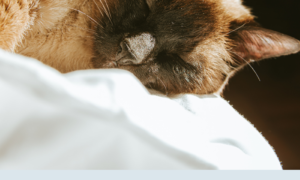Easter is just around the corner, and lilies are showing up everywhere. Although these flowers are beautiful, lilies are a serious health risk to your cat.
Members of the plant genus Lillium, which includes Easter lilies, Tiger lilies, Rubrums, Japanese show lilies, Stargazer lilies, and Daylilies can pose a toxin risk to your cat.
Beautiful But Deadly
When cats chew on the leaves of these plants, they can sustain kidney damage or even death. All parts of the plant are toxic, and your cat can become ill just chewing on one leaf.
Dogs, rabbits, and rats do not seem to respond to the toxins in lilies as cats do. While dogs may experience some minor tummy troubles from eating the leaves off these plants, they typically do not get renal damage.
What To Do If Your Cat Ingests Lilies
Cats who are afflicted with the toxins of these plants will start vomiting, usually wtihing two to six hours after ingestion. While the vomiting may stop for awhile, it will usually return over the course of the next few days.
Please keep this in mind when decorating for Easter. If you plan to have these plants in your home, please keep them out of reach of your cat. If you believe your cat has ingested them or other poisonous plant/substance, contact the ASPCA Poison Control Center immediately at (888) 426-4435 for advice on how best to proceed. A consultation charge of $65 may apply.
If your cat has ingested any part of these types of plants/flowers, it is important not to delay seeking treatment. If you postpone treatment more than 18 hours, your cat is at risk for kidney failure or death.
Before purchasing plants or shrubs to decorate the inside or outside of your home, check for potential health risks to your pets. The ASPCA has composed a free printable list of the most common toxic and non-toxic plants for cats, dogs and horses. To access the list, go to http://bit.ly/1pGx0OU







the pollen is also deadly, so even if the plant is in a place the cat cannot get to, if the pollen falls off the plant and the cat walks on it, your cat has a problem
The pollen does shed quite a bit. Thanks for that addition!